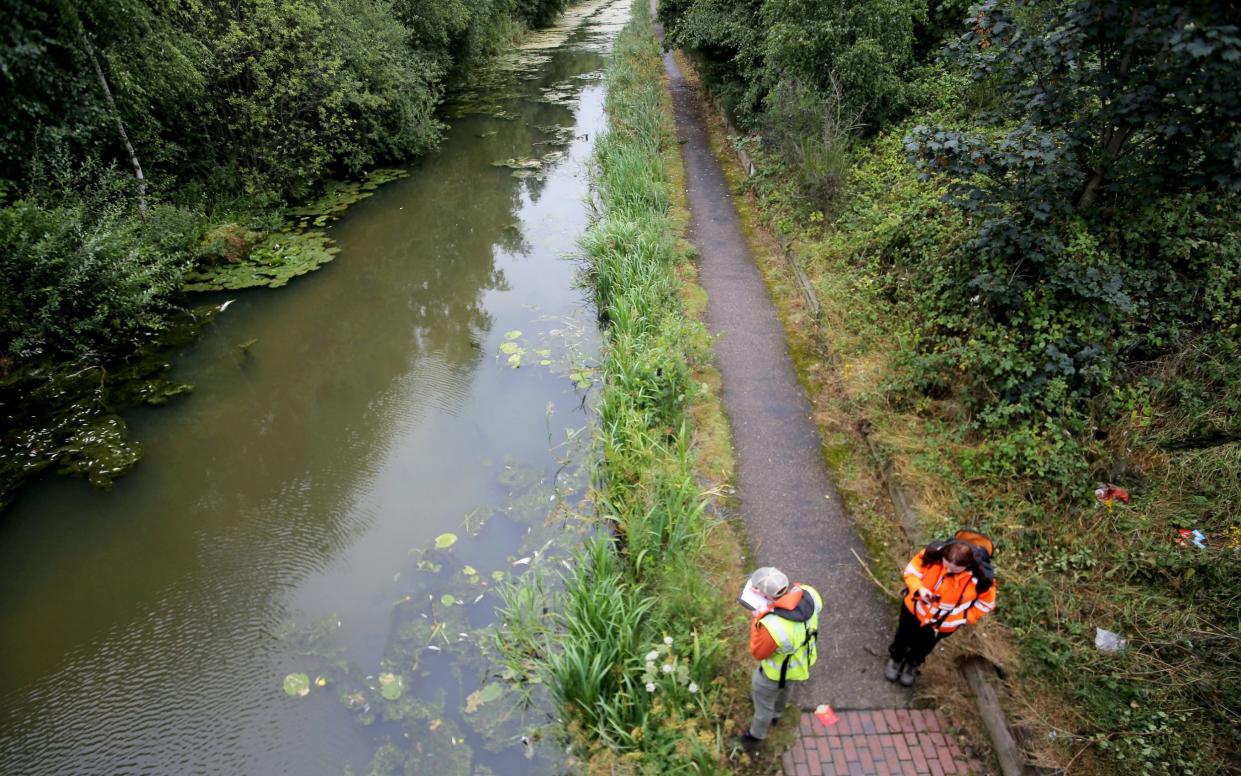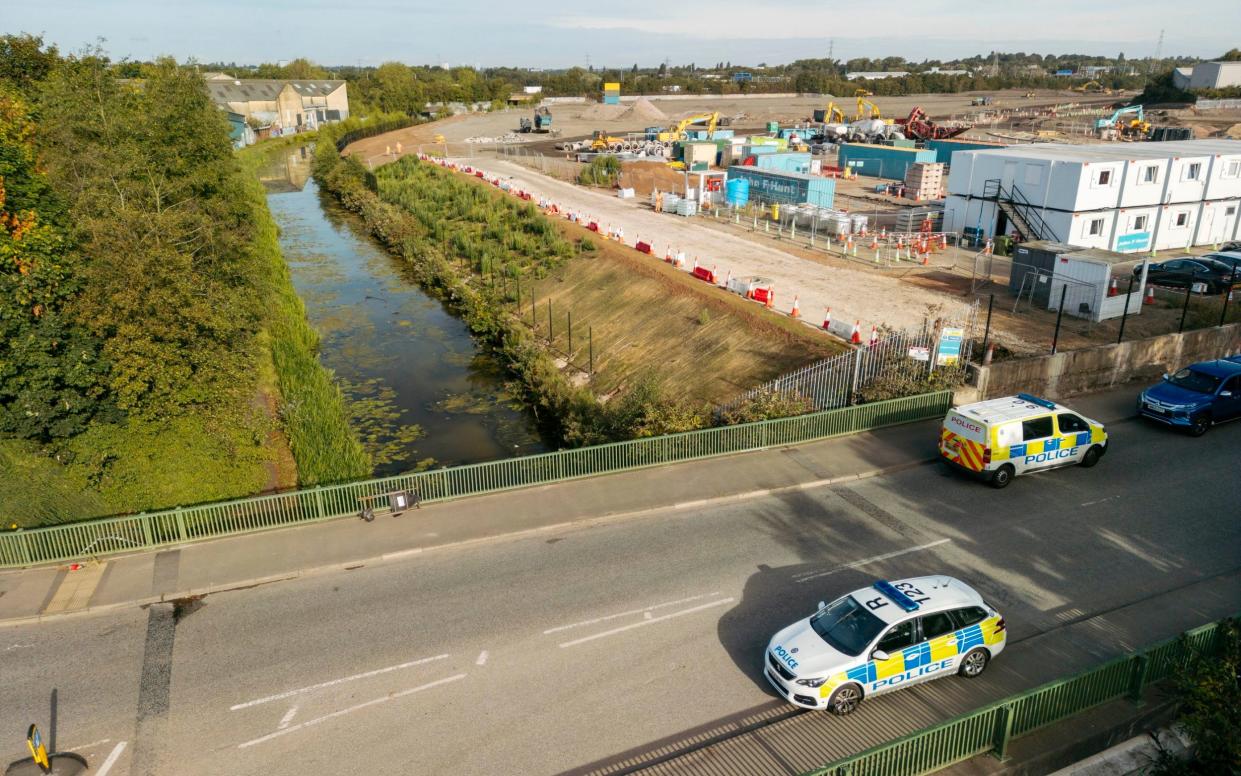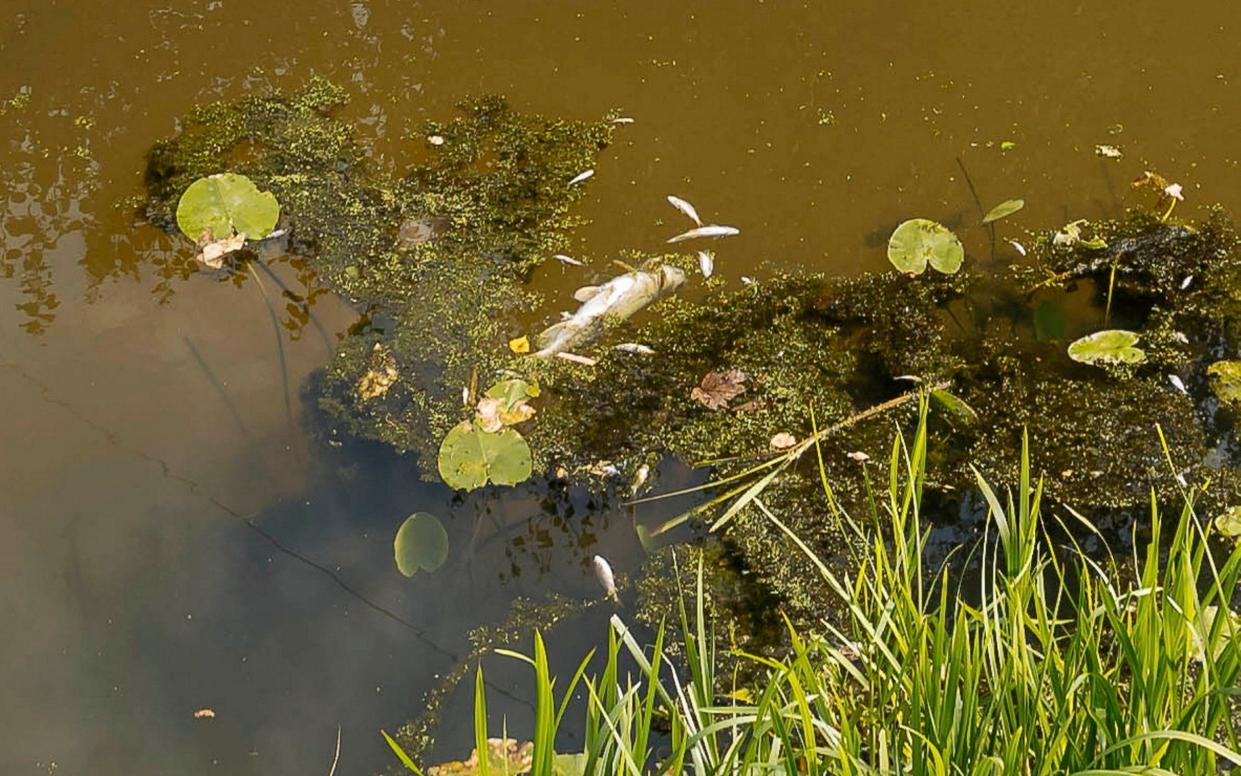Major incident declared after toxic chemical spill in West Midlands

The public has been urged to stay away from sections of a canal in the West Midlands after a spill of sodium cyanide.
Walsall Council has warned of a potential serious health risk to anyone who comes into direct physical contact with the water in the impacted stretch of the canal.
Sodium cyanide is described as “white crystal-like solids with a faint almond colour” by Public Health England and is used in industry for metal cleaning, plating, extraction and photography.
Exposure to the chemical can cause headaches, nausea, dizziness, confusion, changes in heart rate and loss of consciousness, according to the agency.
Ingesting cyanide salts, which can dissolve in water, releases cyanide into the body, the agency’s website states.

Photos show dead fish in the water on the canal, and police tape blocking entrance to the towpath.
Walsall Council are asking the public to avoid the canal and towpaths from the Walsall lock flight to the lock flights at Rushall, Ryders Green and Perry Barr as a precautionary measure.
The Environment Agency is testing the canal water for sodium cyanide and other chemicals in the affected area.
Nadia Inglis, the council’s director of public health, said they hoped to lift restrictions on the affected areas as soon as possible following testing of the water.
Anyone who has been exposed to the water along the affected stretch of the canal and is feeling unwell, is urged to seek medical advice.
The spill could pose a risk to the public water supply if the canal water meets leaky pipelines, said Dr Jonathan Paul, Senior Lecturer in Geosciences at Royal Holloway, University of London.

But he added that the greatest risk was via direct contact with the water.
“Ingestion of water containing a sufficiently high concentration of sodium cyanide can result in classic poisoning symptoms, ie, nausea, weakness, aches, and potentially a loss of consciousness – but that is entirely dependent on how much is ingested and the concentration of the chemical,” he said.
“When it comes to the ecosystem, poisoning of higher-order aquatic life will be affected, such as the fish rather than plants.
“Unlike some pesticides, cyanide doesn’t accumulate up the food chain so won’t affect the entire aquatic ecosystem, as it breaks down much more quickly.”
He said the cheapest way to remove harm from the spill was diluting the water until cyanide levels drop to safe limits, and said there were many possible sources of the spill.
“Sodium cyanide is very commonly used in mining to leach gold and silver, but it’s also used in the production of paper and plastics, and less commonly in the processes of fumigation and electroplating, so there are plenty of places the spillage could have come from,” he said.
An elderly couple said they had been left stranded on their canal boat as a result of the spill.
Bruce Crook, 72, and his wife, Lauris, 70, originally from New Zealand, said they had been stuck outside the locks on the canal in Rushall, Walsall, since Monday as access was closed off during testing.
Mr Crook said: “They want the water to stay as undisturbed as possible. As a first step, it seems they want everything to stay still.
“The locks were closed because of repairs required, but by Monday afternoon, it was a wider stoppage. So we can’t move.
“We registered with the Canal and River Trust as an interested party and they’ll let us know when they’re happy that the boats start moving again.”
In an update on Wednesday afternoon, Walsall Council said the source of the spillage has been identified and stopped and that an investigation was under way into its cause.
”Local, regional and national agencies are working together to minimise the potential risk to health,” it said.


